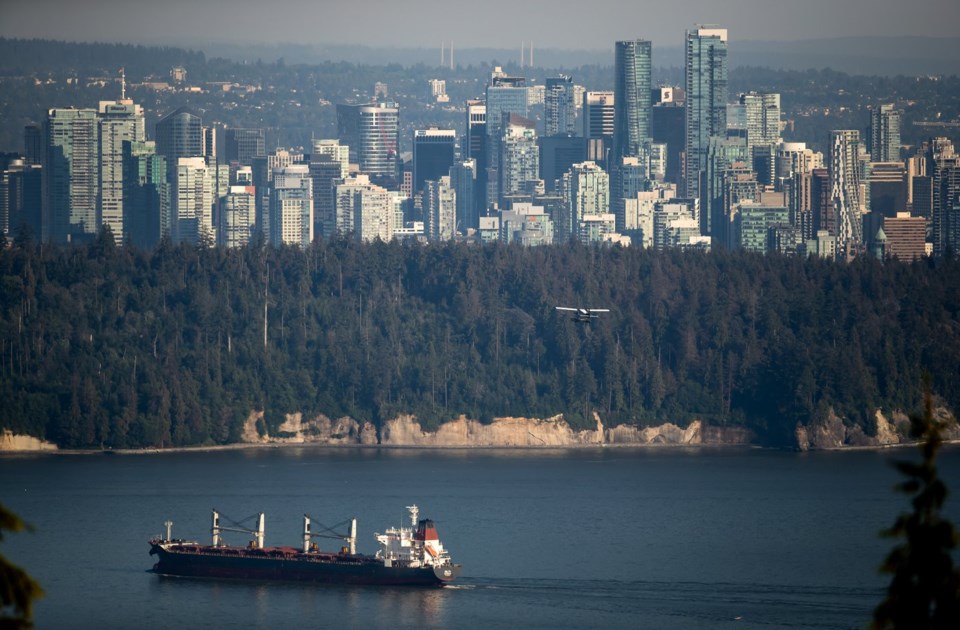VANCOUVER — A 5.4-magnitude earthquake rocked British Columbia's southwest coast on Friday, shaking up residents, and issuing a reminder that the area is seismic zone.
Natural Resources Canada said the quake was centred 24 kilometres north-northeast of Sechelt on the Sunshine Coast and while it originally set the quake's magnitude at 5.1, it upgraded it later on Friday.
It said the earthquake occurred at 1:26 p.m. local time on Friday, at a depth of about one kilometre, and there were no reports of damage.
However the quake shook major population centres including Metro Vancouver and Victoria for several seconds and was felt as far away as Prince George in central B.C., about 800 kilometres away.
The U.S. National Tsunami Warning Center said there was no risk of a tsunami.
Karen Weissenborn was working at a gift store near the epicentre in Sechelt when the earthquake triggered the store’s alarm.
She said the shaking started as mild and then got more intense, and her first reaction was thinking that a “truck has slammed into the wall.”
Brynn Campbell was working at a clothing store in Sechelt.
“It was like a big rumble, yeah, and the glass was shaking. That was wild,” said Campbell.
“At first we thought it was like construction or something, to be completely honest. And then we kind of were like, 'Oh no, no, no. That was an earthquake.' "
Campbell said there was no damage at the store.
The quake did not result in alerts from the province's Earthquake Early Warning system for most areas that felt it.
Alison Bird, a seismologist with Natural Resources Canada, said alerts were only issued in an area around the epicentre, where "strong shaking" was anticipated.
Taimi Mulder, another Natural Resources Canada seismologist, said B.C. has been “overdue” for a larger earthquake since 1946, when a magnitude-7.3 quake struck the Courtenay area on Vancouver Island.
“It’s definitely a really good wake-up call that we all need to be prepared,” she said of Friday’s quake.
“Mentally, be prepared that we could have a large earthquake and that they really do happen here. Second of all, know what to do when you experience an earthquake, so for instance, that would be drop, cover, and hold on.”
Mulder said information about Friday’s quake was still preliminary and more details would be confirmed throughout the day.
The offshore earthquake often dubbed “the big one” has a recurrence interval of about 250 to 800 years, with the last one recorded 325 years ago, she said. “So we’re in the time window between now and the next 500 years for another one of those.”
John Cassidy, another seismologist with Natural Resources Canada, said shallow earthquakes typically bring aftershocks that may or may not be felt in the coming days.
BC Ferries issued a travel advisory Friday saying there may be sailing days for the Horseshoe Bay and Langdale terminals as its teams conduct inspections on terminal infrastructure following the earthquake. Langdale is about 30 kilometres from Sechelt.
The City of Vancouver issued a statement saying the quake set off a "Level 1 response," which includes immediate inspection of bridges by the city's structural engineering consultants.
Reports from Earthquakes Canada and the U.S. Geological Survey said many thousands reported feeling the quake, with most saying it was of light to moderate intensity.
The operator of E-Comm, the 911 service provider for British Columbia, issued a news release Friday reminding people who felt the quake that their call centre is for emergencies only.
On Thursday, a 5.2-magnitude earthquake was detected roughly 63 kilometres northeast of Grande Cache, Alta., but it wasn't believed to have caused any damage.
Last week a string of much smaller quakes shook B.C., including a 3.8-magnitude tremor off the southern coast that was felt across southern Vancouver Island.
Earthquakes Canada says shaking from an earthquake increases about 10 times for each whole increase in magnitude; for instance a magnitude-6 quake is felt 10 times more strongly than a magnitude-5 quake.
It says it is "very unlikely that an earthquake of magnitude less than 5 could cause any damage."
This report by The Canadian Press was first published Feb. 21, 2025.
Nono Shen and Brenna Owen, The Canadian Press




